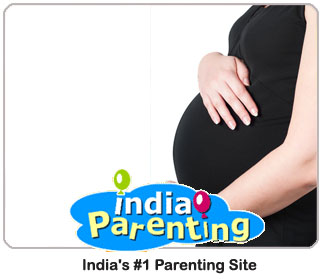 Name: CK
Name: CK
Hi all,
I found this article very useful for all of us who are worried about our diet. We can use this to guide our diet and we can get ideas on what else to eat... Check out the indiaparenting pregnancy page, it is very informative. I got this article from here only. I am not able to post the url...
Wising Happy/Healthy eating,
CK
-----
Why is so much stress laid on a healthy diet (Dr. Rita Shah)
As you are the only source of nutrition for your unborn baby, your eating habits will affect your baby' s health and well-being. In order to cope with the increased demands, your body needs a sufficient amount of nutrition. Poor eating habits can adversely affect your pregnancy and result in conditions like anaemia, pre-eclampsia, mood swings, fatigue, leg cramps, constipation, etc. It had been learnt that deficiency of some minerals like zinc is sometimes responsible for initiating premature labor.
How will my diet affect the baby
As long as there is no family history of medical diseases, eating the right kinds of foods will ensure that you have a healthy baby. A study conducted by the Harvard School of Public Health has shown how baby' s health at birth is directly related to the mother' s diet during pregnancy. Of the women who were on an excellent diet, 95 of them had healthy babies. Whereas, of the women thriving on junk food only 8 of them had healthy babies, and 65 had premature, malnourished, functionally immature or stillborn babies.
What are the implications of a poor diet
Every bite counts. Whatever an expectant mother eats or does not eat affects her child. Lack of folic acid in the first trimester increases the risk of spinal tube defects and lip and palate deformities. Lack of protein and calories in the last trimester could affect the development of the brain. To really grow well, your baby requires a well-balanced diet that includes vitamins, minerals, proteins and substantial calories for its all-round development.
How many calories does an expectant mother require
In the early months of pregnancy, you do not need to change your diet. However, as the pregnancy advances, you may need to increase your calorific intake to 500 additional calories a day. This normally happens in the second and third trimesters. If you eat more than this amount, it is you who will gain the unnecessary weight, and not your baby. So make sure that you avoid junk foods like burgers, fries, cookies, etc. as these constitute empty calories. What you need is a sufficient amount of proteins, carbohydrates and foods that contain minerals and vitamins.
They say that a pregnant woman eats for two
Your pregnancy does not entitle you to eat for two. In fact, if you do eat for two, you will gain so much weight that you will not only be inviting unnecessary complications, but will also have difficulty in shedding your excess weight after pregnancy. A recent study has shown that in addition to her normal diet of 1500-200 calories, a pregnant woman needs to take only 300 additional calories per day (that is as many calories as one additional bottle or can of coke). Remember that the one that you are trying to feed is only a tiny foetus whose entire weight gain in 9 months is 6-8 pounds.
What is a balanced diet
During pregnancy, your diet should consist of the following
3 helpings of first class proteins
2 helpings of vitamin C foods
4 helpings of calcium-rich foods (4 during pregnancy, and 5 during lactation)
3 helpings of green, leafy and yellow vegetables or fruits
½ serving of other fruits and vegetables
4-5 helpings of whole grain and complex carbohydrates
2 helpings of iron-rich foods
8-10 glasses of water
Vitamin and Folic Acid supplements based on your doctor' s recommendation
What foods contain elements of this balanced diet
Source of Nutrition Foods containing Nutrition
Proteins For vegetarians: paneer, tofu, cheese, yogurt, milk, peas, all kinds of beans and dals, and all kinds of nuts. For non-vegetarians: all types of meats such as beef, pork, poultry, lamb, veal, kidneys and liver all kinds of fish and eggs
Carbohydrates Sugar, breads, cereals, rice, potatoes, pastas
Fats Milk, cream, cheese, butter, margarine, cooking oil, cooking fats, mayonnaise, salad dressings, and nuts, bacon, lard.
Vitamin A Fish oils, egg yolk, offal, milk, cheese, butter, margarine, fruits like bananas, peaches and apricots, carrots, brussel sprouts, spinach, tomatoes, turnips, beetroots.
Vitamin B1 Beans, peas, all kinds of nuts, wheat, crude rice, soya bean, yeast, eggs, liver, kidneys, brain, heart, seafoods and fish oils
Vitamin B2 All kinds of meat, liver, kidneys, heart, brains, all kinds of fish, all kinds of nuts, milk, cheese, cream, yeast, whole wheat, peas and beans
Vitamin C All citric fruits like oranges, tangerines, grapefruit, tomatoes, black currants, melons, and strawberries. Vegetables like cabbage, lettuce, carrots, radish, brussel sprouts, watercress and brocolli. Note that vitamin C gets destroyed on cooking or heating.
Vitamin D Fish oils and fish extracts, animal fats and eggs Milk and milk products like cheese and butter.
Vitamin E Wheat germ oil and cotton seed oil. Vitamin E is also present in limited amounts in eggs, milk, butter, cheese, unpolished rise, wholewheat bread and wheat.
Iron All types of meats, especially liver and kidneys. Also found in eggs, spinach, cabbage, brussel sprouts and broccoli.
Calcium Milk and milk products like cheese, butter, cream, etc. spinach, broccoli, all kinds of nuts, eggs, and all kinds of fish.
Folic Acid Green leafy vegetables, liver and kidneys. Normally also taken as supplement in form of tablet.
Minerals - Phosporus Seafoods, cheese, eggs, milk, meat, onions and wholemeal bread.
Minerals - Copper Meat, liver, cheese and beans
Minerals - Iodine All fish foods and fish extracts
Minerals - Manganese Peas, beans, wheat products, green vegetables and animal liver.
Green leafy vegetables and fruits: Apricots, mango, yellow peaches, papaya, persimmon, pumpkin, beet greens, broccoli or turnip greens, carrots, lettuce, spinach and sweet potatoes.
Other fruits and vegetables: apples, asparagus, bananas, bean sprouts, green beans, blackberries, raspberries, brussel sprouts, cherries, grapes, mushrooms, peaches, okra (lady' s fingers), parsley, pears, potatoes and pineapple.















